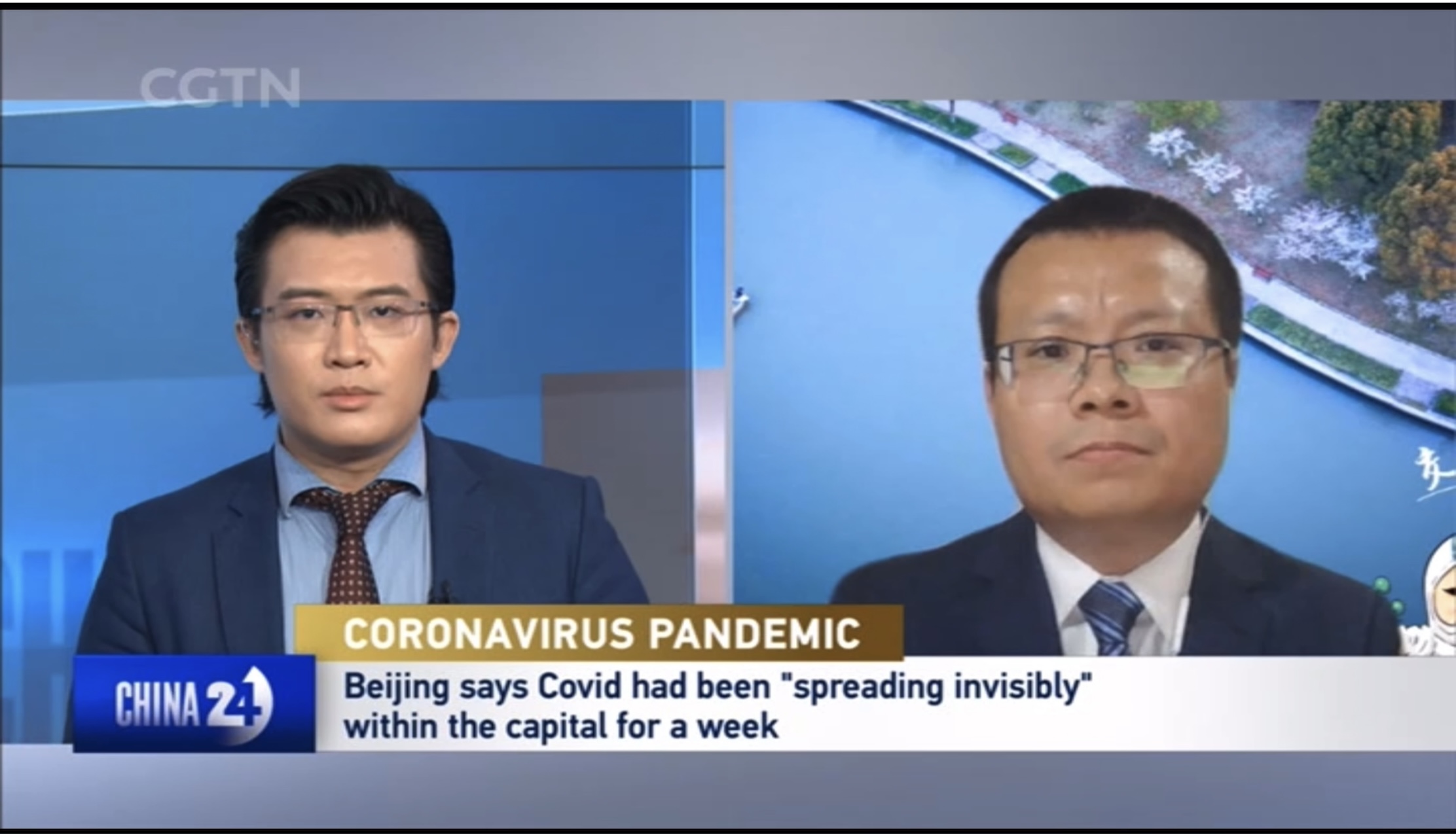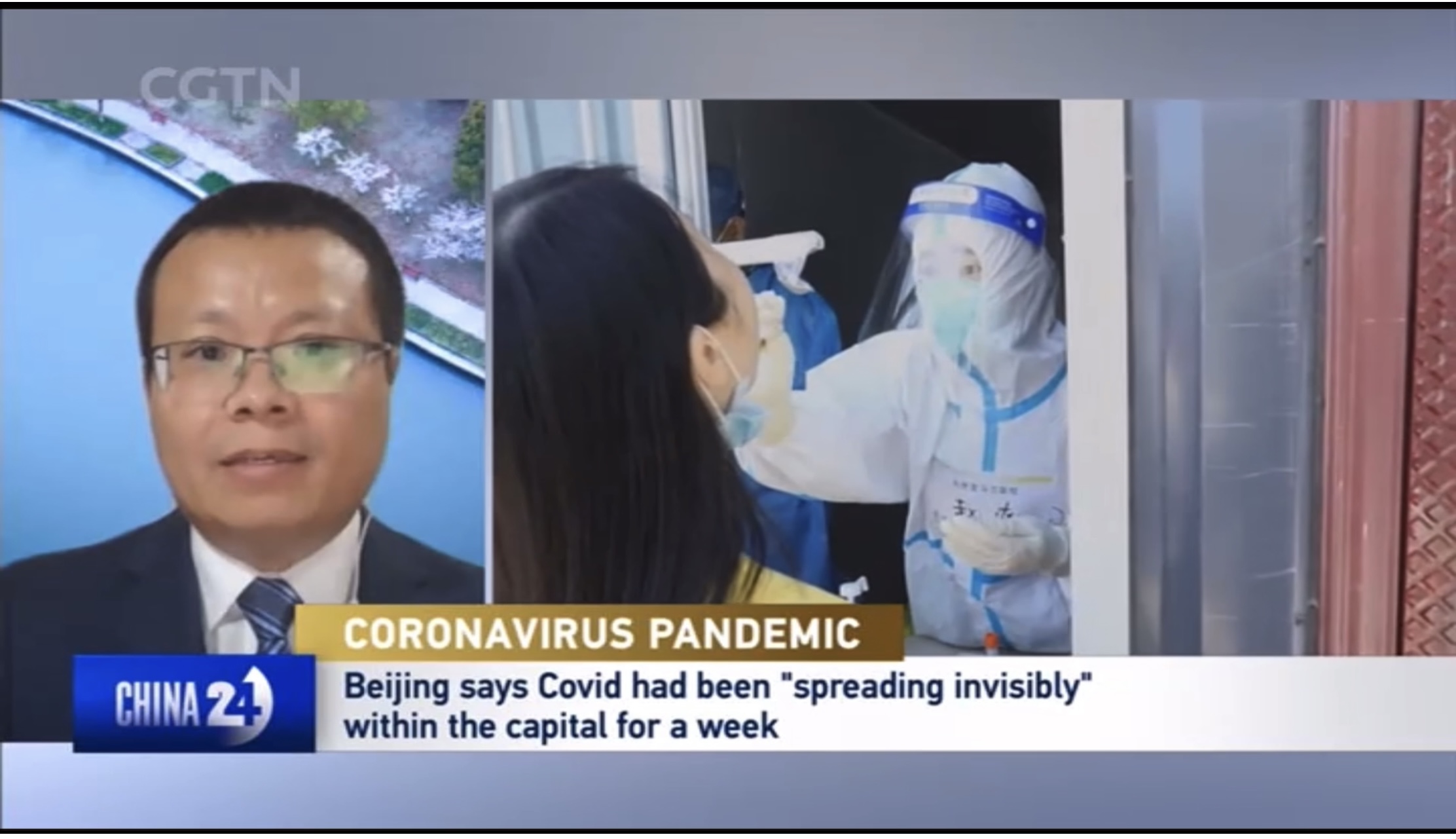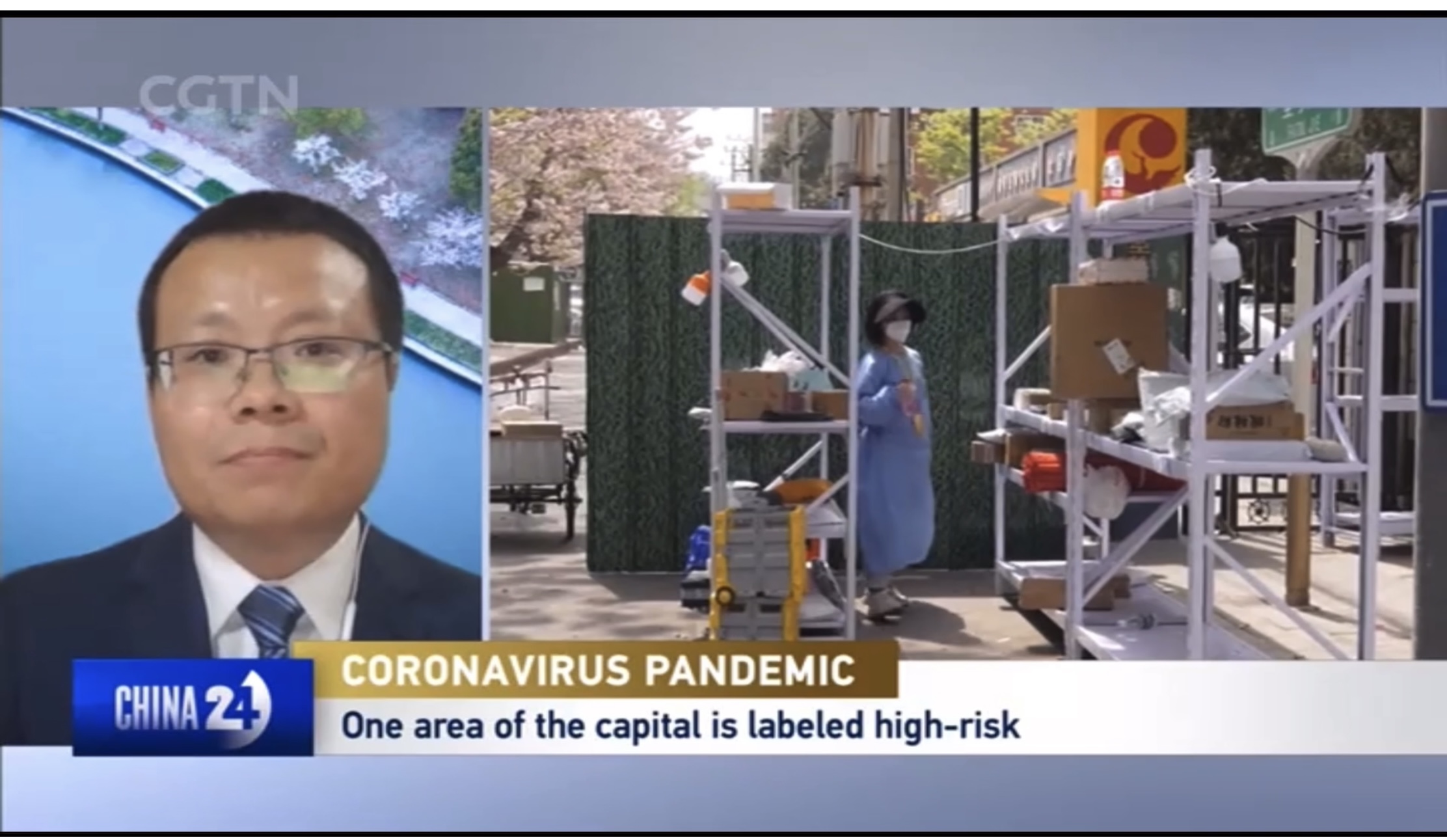上海交大赵大海接受央视专访:北京以动态清零为方针防控新冠疫情

上海交通大学国际与公共事务学院教授、博士生导师,上海交通大学-耶鲁大学卫生政策联合研究中心执行主任赵大海,自新冠肺炎疫情暴发以来,对于新冠疫情暴发、防控以及卫生政策第75次接受中央电视台专访,也是第139次接受央视、上视专访。2022年4月24日,赵大海接受中央电视台英语频道专访,在《中国24小时》节目就北京本波新冠疫情防控及其面临的挑战等话题进行了解释和评论。现将访谈内容翻译并摘录如下。

主持人:正如我们提到的,北京的新冠肺炎病例又在增加。您如何看待未来几天的发展?
赵大海:考虑到北京这一次的新冠散在疫情的传播链相对复杂,新发现的病例已经传播了大约一周的时间,因此,未来几天北京还会将发现更多的新冠病例。
不过,我相信北京的本波疫情将在较短时间内得到控制。至少有两个原因可以支持这一论断。首先,北京的本波疫情还处于疫情暴发的早期阶段,目前尚未发现的潜在疑似病例的数量不会很大。其次,北京市政府已在第一时间就采用了动态清零的防控策略来应对这一波疫情。例如,相关区域已实行了封控管理,在重点人群已开展了大规模的核酸检测。

主持人:北京市政府有关部门在控制本波疫情方面将面临什么样的挑战?
赵大海:我认为可能会至少面临三个挑战。第一,奥密克戎的传播速度远快于新冠之前的病毒株,北京市相关部门和居民应充分重视奥密克戎,不能利用传统应对新冠之前毒株的思维来应对奥密克戎。第二,考虑到北京这一波疫情已涉及到学校,相关部门应更加重视在学校的疫情防控。毕竟,作为防控场所而言,学校是疫情防控最困难的场所之一。第三,借鉴上海抗击奥密克戎的经历,北京市相关部门可能要修订对于封控区域居民生活物资供应保障和物流系统管理的应急预案。此外,如果封控区域比预期要大得多的话,那么物流系统和生活物资供应的科学应急预案就显得越来越重要。
供稿者:国务学院
日期:2022年4月24日
ZHAO Dahai’s 139th COVID explanations on TV: Beijing implements the zero-covid strategy
Dahai Zhao, a doctoral supervisor at the School of International and Public Affairs of Shanghai Jiao Tong University and Executive Director of Shanghai Jiao Tong University-Yale University Joint Research Center for Health Policy, has been interviewed by CGTN for the 75th time (the 136th time by CGTN / ShanghaiTV) since the COVID-19 pandemic. On April 24th, Zhao commented on COVID-19 prevention and control in Shanghai on CGTN “China 24”.
Q1. As we mentioned, Beijing is seeing another rise in COVID cases. How do you see this developing in the next few days?
ZHAO: Considering the transmission chain of this rise is relatively complicated, and the newly found cases had existed for about one week, more cases will be found in the coming days.
However, I believe the outbreak in Beijing will be controlled in a short period of time. At least 2 reasons can support this conclusion. First, the outbreak in Beijing is at the early stage of the epidemic, the number of current potential cases will not be very large. Second, at the first time, Beijing government has applied the zero-covid strategy to cope with this round of the infections. For example, the related areas have been applied the closed-off management, and the key population are testing for the mass nucleic acid test.
Q2. What kind of challenges will Beijing authorities face in controlling this outbreak?
ZHAO:In terms of the challenges, I think there are at least three challenges. First, due to the fact that spread speed of the omicron is much faster than previous covid-19, the related departments and the residents should pay full attention to the omicron, and cannot utilize the traditional thinking to cope with the omicron. Second, considering this round of the infections involves the school, the related department should pay more attention to the prevention and control. After all, the school is one of the most crowded places, and one of the most difficult places for controlling the outbreak. Third, considering the lessons of combating omicron from Shanghai, the related departments of Beijing may revise the emergency plan on the supply of the living materials for the areas of closed-off management. Furthermore, if the areas of closed-off management are much more and larger than expected, the scientific emergency plan on logistics system and living materials supply is more and more important.
Contributor: SIPA, SJTU
Date: April 24th, 2022

